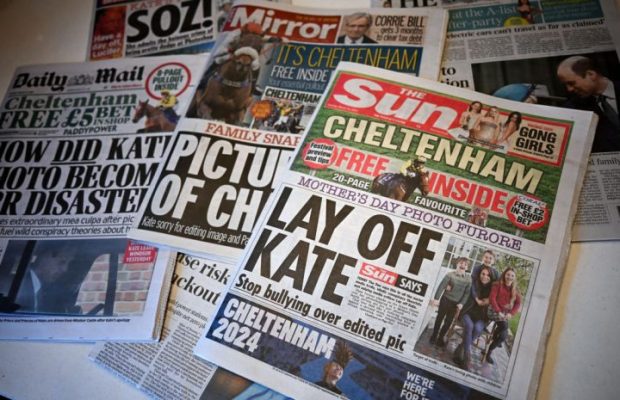How time flies. In March 2014, quite out of the blue, I was commissioned by then prime minister David Cameron to lead an internal review designed to inform and improve the government’s understanding of the Muslim Brotherhood. It’s been six years since I delivered what has become known as the Muslim Brotherhood Review. And on 17 December, it will be exactly five years since Cameron reported on its main conclusions to the House of Commons.
I made it clear before I started that if I accepted the commission, I would need the freedom to conduct my own research, travel widely and have proper support within Whitehall. I would look at Islamism in the round, not simply the Brotherhood variety. And I would write the review myself, in my own way and with my own conclusions – while remaining in post as ambassador to Saudi Arabia.
We worked fast. Within four months, I had travelled beyond Riyadh and London to Bahrain, Qatar, Kuwait, the UAE, Egypt, Tunisia, Morocco, Lebanon, Israel and the Palestinian Authority. I personally conducted interviews or otherwise obtained the views of anywhere between 100-200 individuals, including many senior Muslim Brothers, other Islamists, subject experts, government officials, lawyers and intelligence operatives. I asked our embassies around the world to report on the situation in their own countries. I read everything I could get my hands on in five languages, both open source and classified. I consulted colleagues, argued over key conclusions and thought long and hard about what it all meant.
Some thought it an unusual and even reputationally risky task for a serving ambassador to undertake. They suggested I should simply have kept my head down. But I was moving on from the FCO. And in truth I found the work intellectually stimulating. I had trained as an academic and it felt as if I was being asked to write a second doctoral thesis, this time in months rather than years (always a good discipline: I recommend it).
Addressing the ideological challenge of Islamism – which David Cameron had identified as a major issue in his Munich Security Conference speech in 2011 – also seemed to me something tangible and important. This was particularly so at a time when British foreign policy in the aftermath of Iraq and Afghanistan had become increasingly self-absorbed; dogmatics and compliance seemed more important than the hard-headed pursuit of strategic interests within a changing global order.
It certainly wasn’t plain sailing. But the problem wasn’t the Islamists, many of whom were only too willing to speak to me (and when they weren’t, it was water off a duck’s back). Instead it was barely disguised hostility to the whole idea of the review from some experts in the field (who seemed to regard it as an impertinence for a mere government to question their research) and, perhaps more surprising, from some colleagues.
They seemed to have a grab-bag of objections, some reasonable, most not. The project, they said, served a hard-right agenda. Or, they said, we were being used by the Emiratis, Egyptians or Saudis to pursue their own vendettas (we weren’t).
Islamists, with whom we had engaged for decades, were simply misunderstood, it was claimed – and I was abetting that misunderstanding. They weren’t anti-democratic. And in any case, governmental responsibility would domesticate them.
Islamism, it was argued, was an authentic and understandable response to oppression. The Brotherhood, in particular, some suggested, were like Christian Democrats with beards, who acted as an important firewall on the primrose path to radicalisation. These people said that the Brotherhood offered the suffering masses of the Islamic world a peaceful political alternative to the otherwise inevitable explosion of righteous anger against Arab dictators and a hostile and Islamophobic West.
In the end, all that bothered me (to quote the great Philip Marlowe) like ten per cent of nothing at all. I travelled, did the talking, supervised the preparation of detailed and consistent records, weighed the evidence, studied the texts, watched the videos, dismissed the wild conspiracy theories and – after a rigorous testing process led by the Cabinet Office – came to my conclusions. These are reflected in what the PM told the House of Commons in May 2015.
Five years later, what has changed? Well, in the wider world, quite a lot. Leaving aside the predictable positions of some Arab governments, anyone who has been following recent developments in Austria, France, Germany and the Netherlands will have sensed a change of mood. There is a new appetite to ‘Understand Islamism’ – to paraphrase the title of a new project which I am heading at Policy Exchange – and to counter the challenge at an ideological level.
And this is not simply about the Brotherhood. The rise of the Islamic State, a wider understanding of the ideological underpinnings and complex connectivities of both Sunni and Shia Islamist movements, a recognition of the real damage Islamist discourse can do to social cohesion and a rapidly changing balance of global power have also helped shift the mood in the US and much of Europe.
It’s too early to say where a Biden administration will come down on all this. And it would be unwise to take the position of the Trump administration as setting any sort of precedent. But there has been an opportunity for much self-reflection since 2013.
Back then, the sheer incompetence and high-handedness of the MB in Egypt, the hijacking of Libya, the disaster of Iraqi leader Nouri Maliki (backed by Biden at the time) and the horrors of Mosul and Raqqah called into question many of the assumptions policy-makers had previously held. Widespread popular support for the authoritarian turn to security across the region also changed the dynamic. This makes me hope that we will be slower to rush to judgement next time when it comes to the virtues of revolution and the arc of the moral universe.
We now live in an era in which the German government can announce that Birmingham-based Islamic Relief Worldwide – which has suffered from a series of (ahem) embarrassing board-level incidents this year – will no longer receive official funds. The authorities in Austria and France can investigate suspect Islamist financial flows, call out inflammatory and hate-filled statements and make it clear that ideologies that threaten the basis of the liberal social order and republican values will now be seen as a challenge for the whole of government. Other countries have quietly conducted their own reviews. Many of those who described Cameron’s decision to launch the review six years ago as bizarre or self-serving have changed their tune. And there’s been a welcome and rigorous revival of interest in the complex relationship between Islam, Islamism and democracy.
But here in London we have so far offered at best lukewarm support to Paris and Vienna. The police still seem to believe that ideology (at least on this issue) is a private matter and they should anyway focus strictly on counter-terrorism – which, by the way, is increasingly about far-right movements.
The elderly Ibrahim Munir, 83, whom I remember telling me in 2014 that he really knew very little of what was going on, has (as we have reported at Policy Exchange) just been appointed acting supreme guide of the MB, a position he will fill from his north London retreat. Christian and Jewish groups up and down the country seem to think that there is nothing that can’t be resolved by a nice cup of tea and more inter-faith dialogue. The local government association commissions research on the offensiveness of the word ‘Islamist’. And underneath it all, one detects the undiminished inclination of the bureaucratic ‘machine’ to pursue what it considers to be the path of least resistance: engagement with Islamists.
All of this should worry a Government that is robust in its identification of the problem, yet still shies at the most important fences. Beneath the surface, there may be signs of a shift in thinking. But there has been no definitive shift in its public discourse – at least of a kind that would signal a new era in UK policy towards Islamism.
So wouldn’t this be a good moment for a reforming Government to act? Above all, is it not time to admit that soft-minded engagement with Islamism has never worked – and to build a new policy framework on that critical foundation? Maybe in the New Year…
<//>
Got something to add? Join the discussion and comment below.
Get 10 issues for just $10
Subscribe to The Spectator Australia today for the next 10 magazine issues, plus full online access, for just $10.
Sir John Jenkins is a Senior Fellow at Policy Exchange and has served as UK Ambassador to Syria, Iraq and Saudi Arabia, and was the Foreign Office’s Director for the Middle East and North Africa



















Comments
Don't miss out
Join the conversation with other Spectator Australia readers. Subscribe to leave a comment.
SUBSCRIBEAlready a subscriber? Log in